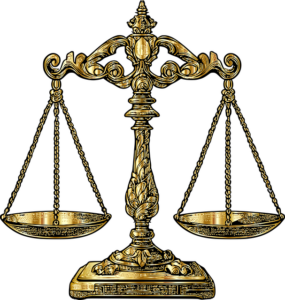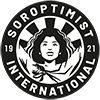
BRIDGING GAPS, BUILDING ALLIANCES
The UN World days provide an opportunity to spend a little time thinking about universal concepts which affect each of us. Today we need to think about Social Justice and particularly to see where it might impact, on where gaps need to be built and how we can build alliances.
The idea of Social Justice has a relatively short history. As a result of the upheavals of the industrial revolution and what could be observed as the exploitation of labour, the movement developed to protect and support workers and social justice became a rallying point for radical politics.
Franklin Roosevelt in 1932 observed a society that supported the fittest at the expense of the weakest and suggested as an alternative ‘social justice through social action’ for the protection of humanity. Individual rights were recognized by the UN Charter (1945) and the Universal Declaration of Human rights (1948)
The evolution of social justice in the world has been chronicled in three UN reports: Report from the World Summit 1995, the Social Justice in an Open World (2006) and the Coalition for Social Justice (2023). These reports are available on the UN website.
In Copenhagen, 1995, the UN held the largest ever meeting of world leaders pledged to overcome poverty and create safe, stable, and just societies by creating employment with people at its centre.
The Declaration stated:
‘all human beings, irrespective of race, creed or sex, have the right to pursue both their material well-being and their spiritual development in conditions of freedom and dignity, of economic security and equal opportunity’
The 2006 report examined progress towards the ideals stated in the declaration, reviewing progress and noting inequalities. In particular, their report states that poverty takes away all rights, neglects the pursuit of social justice in society and leads, de facto, to a future marred by violence, repression and chaos. Arising from this information, the UN General Assembly, 2007, named 20th February 2009 as the first World Day of Social Justice, to encourage people to see how social justice effects poverty eradication.
Up to the minute; the Coalition for Social Justice created in November 2023 which is the outcome of much work by different UN and other multilateral organisations, led by the ILO, employers and workers’ organisations, individual companies, NGOs (including Soroptimists) and other actors has made the commitment to contribute further to the attainment of Social Justice. This Global Coalition will raise social justice as a global policy requiring greater multilateral cooperation and clarity about policy.
Considering the social justice aims of the United Nations, it is striking how similar they are to the aims of Soroptimism, though of course Soroptimsts, as usual, were ahead of the posse. The very first club, in California, aspired to maintain ethical standards, to network and provide service to improve the lives of women and girls and to provide service in their communities. In large measure the aims of Soroptimists today are still the same, and still work for Social Justice ‘to transform the lives of women and girls through education, empowerment and enabling opportunities.’
No surprise, therefore, that Soroptimists are at the forefront of the battle for social justice, locally, nationally, and internationally. Our Club members work in their communities to support people in need, often in tandem with local charities, they advocate for women in prison, support women at risk of domestic violence and deliver food parcels and literacy support. Nationally, they group together to raise awareness about women’s issues – family support, cancer support and awareness of international issues. Through our Programme Action, we are at the forefront in working towards achieving the UN Development Goals.
Soroptimists are international with a voice at the United Nations, in recognition of our work. We have a presence – physical and virtual – at the CSW in New York, we have representation at seven UN centres, from which we are able to advocate our views to the UN and also report back to our membership on developments.
It is good, I think to recognise and give ourselves credit for what we have achieved and for our on-going action, but I think also that we could take time to consider where we can improve in our Clubs and our communities. Soroptimist International is a big club, with tens of thousands of members in many different countries and infinite opportunities to support social justice. Time to find a bridge to build, or a gap to fill?
By Mary Hession, SI Dublin, Republic of Ireland


